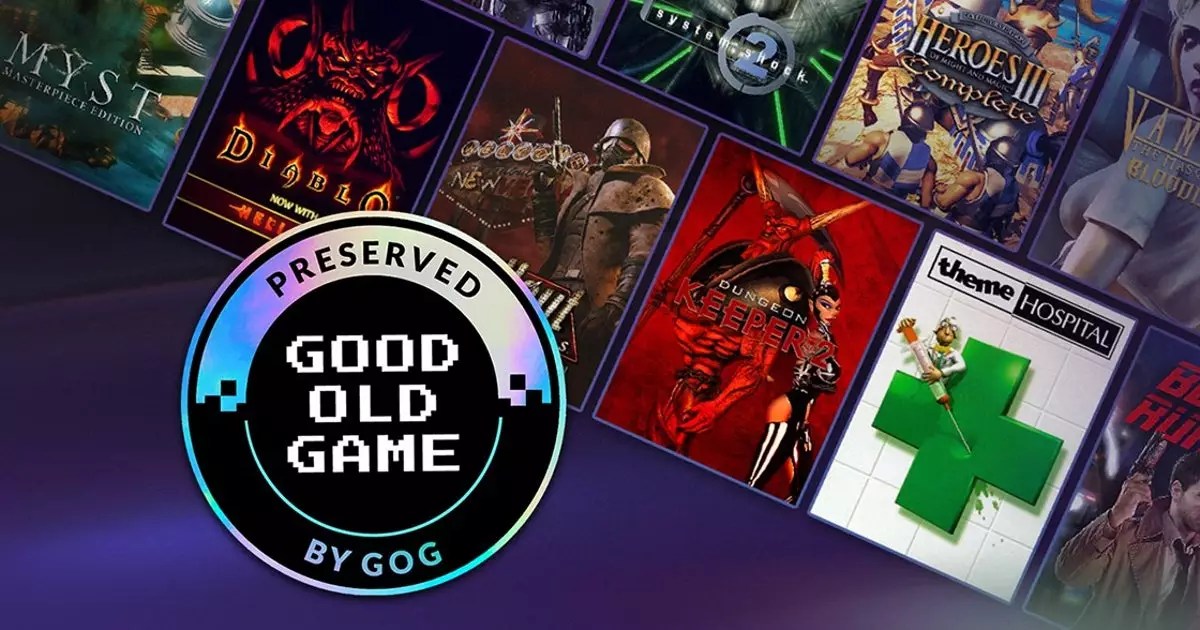Gaming has seen an evolving landscape, and GOG (Good Old Games) stands as a testament to this transformation. Initially celebrated as a sanctuary for nostalgic gamers, GOG primarily specialized in classic titles that harked back to the golden days of gaming. However, as the gaming community has expanded and diversified, GOG has gradually embraced a repertoire of modern blockbusters. This shift, while commendable in bringing contemporary offerings to a wider audience, poses questions about the essence of game preservation and the site’s original mission.
The recent announcement of the GOG Preservation Program, aimed at restoring and enhancing older games to ensure compatibility with modern systems, marks a critical milestone for the platform. But beneath this commitment lies a dichotomy: GOG is redefining what it means to preserve gaming history in an era that increasingly values accessibility and functionality over nostalgia.
The GOG Preservation Program is more than just a marketing strategy; it signifies a genuine effort to instill new life into classic titles. By resolving compatibility issues, adding essential features, and ensuring that these games run smoothly on contemporary hardware, GOG is indeed fulfilling a crucial role in game preservation. With a fancy badge indicating a game’s restored status, players can easily identify titles that have been optimized for modern use, relieving them of the frustration that often accompanies playing older games in today’s tech landscape.
The process starts with GOG’s dedicated team of developers who meticulously root out bugs and implement necessary updates to the game’s architecture. Compatibility with the latest operating systems, as well as inclusion of modern video codecs, are among the enhancements made to ensure seamless gameplay. Additionally, games that complete this rejuvenation process are marked as “Good Old Game,” signifying their readiness for a hassle-free experience that requires no unofficial mods or patches.
The initial rollout features more than 100 games, including iconic titles like Resident Evil, Diablo, and System Shock 2, each remastered to deliver the most complete version available to players. The inclusion of downloadable content (DLC), expansions, language options, and even offline installers underscores GOG’s commitment to providing a comprehensive gaming experience. By eliminating digital rights management (DRM), GOG further champions the notion of rightful ownership—a principle vital to the core of gaming culture.
Nonetheless, this initial wave of restored classics raises questions about the future of the program and its scalability. GOG’s ambitions are grand; they aspire to include all games—classic and modern—under this preservation umbrella. However, the delicate nature of intellectual property rights poses a significant challenge. Without cooperation from original developers and publishers, the meticulous work done by GOG’s team may not reach its full potential. This underscores the tension between commercial viability and the noble pursuit of preserving gaming history.
While GOG’s Preservation Program is a step toward safeguarding gaming history, it is not without its commercial interests. GOG operates ultimately as a business, and while the program showcases a dedication to preserving vintage titles, it also serves to bolster the platform’s market presence in a crowded gaming landscape. This brings to light a paradox: game preservation can be a profitable enterprise, but the integrity of that preservation is contingent upon GOG’s ability to secure rights and permissions.
In times where players express outrage over the unavailability of beloved games due to server shutdowns and other publisher-driven restrictions, GOG’s initiative is a timely response to a significant pain point in the gaming community. However, the sustainability of this model hinges on GOG’s ability to maintain momentum and secure ongoing partnerships with rights holders who may be less inclined to cooperate in the future.
GOG’s transformation from a haven for retro enthusiasts to a more inclusive platform reflects broader changes in the gaming industry. The GOG Preservation Program is a commendable initiative that simultaneously addresses market demand while striving to uphold the legacy of classic gaming. As GOG navigates these uncharted waters, those of us who cherish gaming history can only hope they continue to push for a future where beloved titles remain accessible and playable for generations to come. As the gaming community evolves, so too must our approaches to preserving its rich heritage.


Leave a Reply